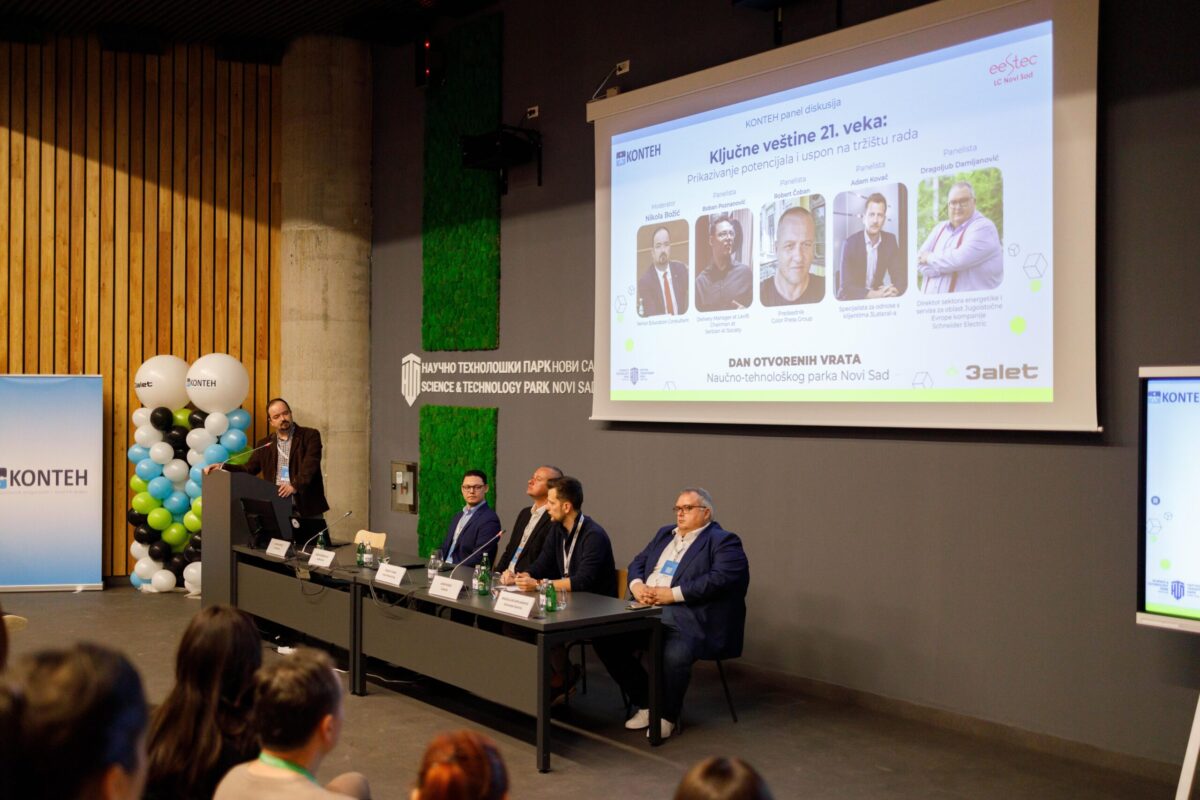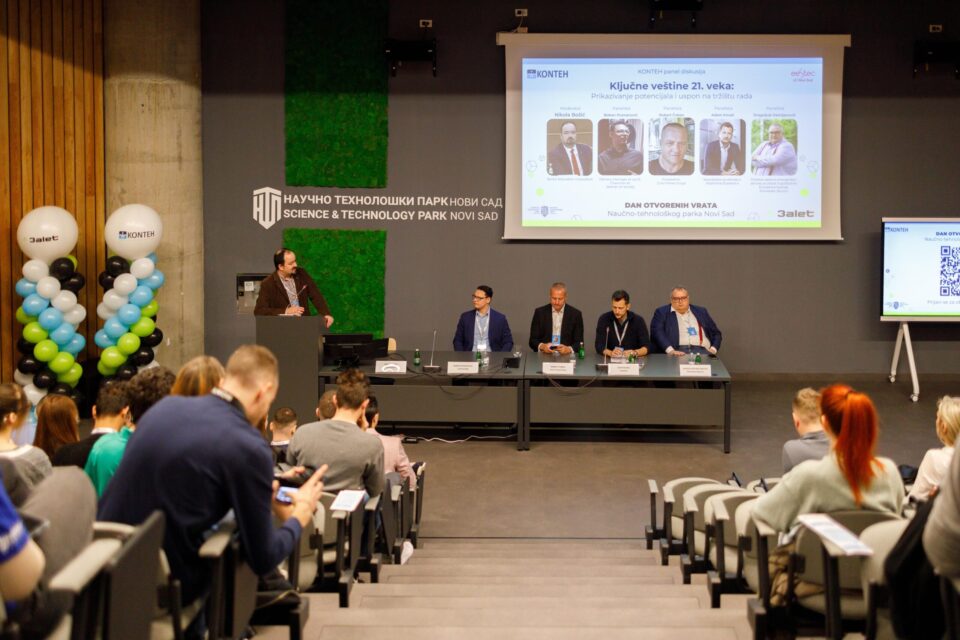In today’s dynamic business environment, where technological innovations and changes in the labor market shape the landscape, companies are facing increasing challenges on their path to success, especially in managing employee development. The panel “Key Skills for the 21st Century,” held recently by the student association EESTEC Novi Sad at the Science and Technology Park in Novi Sad, provided deep insights and strategies for successfully navigating this era of change.

As part of the “Konteh” Conference, which took place for the eighteenth time in Novi Sad and was intended for students of technical sciences, the panel featured speakers including Dragoljub Damljanović (Schneider Electric Serbia), Boban Poznanović (Levi9 / Serbian AI Society), Robert Čoban (Color Press Group), and Adam Kovač (3Lateral). The moderator was Nikola Božić from the Faculty of Applied Ecology in Belgrade.
One of the most important topics highlighted at the panel was the importance of continuous education and skills development for employees. In today’s business world, where technological innovations are advancing rapidly, leaders must recognize the crucial role of training and developing their teams. This means not only keeping up with new technologies and trends but also continuously investing in the training of employees to ensure they have the necessary skills for success.
In addition to technical skills, emphasis was placed on the importance of developing soft skills. In today’s digital world, where communication is increasingly digital, skills such as teamwork, communication, leadership, and time management are becoming increasingly important.
A part of the discussion about the role of artificial intelligence in the future of work stems from current global innovations. Artificial intelligence is increasingly becoming part of everyday business processes, enabling companies to automate tasks, analyze data, and optimize performance. However, panelists emphasized that artificial intelligence is not a replacement for human work and creativity but rather a tool that can enhance our abilities and make our jobs easier.
Mentorship, as an important aspect of individual development, was particularly addressed at the panel. It can be crucial for the career development of employees, providing them with opportunities to learn from more experienced colleagues, gain valuable knowledge and skills, and develop professionally.

From the perspective of companies, investing in the development of employees’ skills brings numerous benefits. Skilled employees are more productive, creative, and efficient in performing their duties, leading to increased business efficiency and competitiveness. Additionally, companies that support the development of their employees’ skills create a positive work environment, increase employee engagement and loyalty, and build a reputation as employers who care about their workers. Even if employees decide to leave the company at some point, investing in their skills development remains a lasting value that contributes to the long-term success of the company.
For employees, continuous skills development provides an opportunity for personal and professional growth, increases confidence and motivation, and enables greater opportunities for advancement and career development. Additionally, developing new skills allows employees to remain relevant in the job market and adapt more easily to changes in the industry.
Leaders must recognize the crucial role of training and developing their teams
Nurturing creativity and critical thinking is crucial for both individuals and their employers. Creativity is the foundation of innovation and a key factor in solving complex business challenges. When we nurture creativity within ourselves, we open the doors to new ideas, perspectives, and solutions that can improve our work and contribute to the success of the company. Creative thinking encourages us to think outside the box, dare to experiment, and make innovative decisions that can have a significant impact on business.
When companies foster an open and inclusive work culture that values diversity of thought and ideas, employees feel freer to express their creativity and voice critical perspectives. This creates fertile ground for innovative solutions and encourages employee engagement and loyalty.
In conclusion, the panel concluded that investing in human resources is not only a corporate responsibility but also a key factor for long-term success and sustainability in business. Companies that recognize the importance of education and development of their employees have advantages in attracting, retaining, and motivating talent, as well as achieving long-term success in the market.
